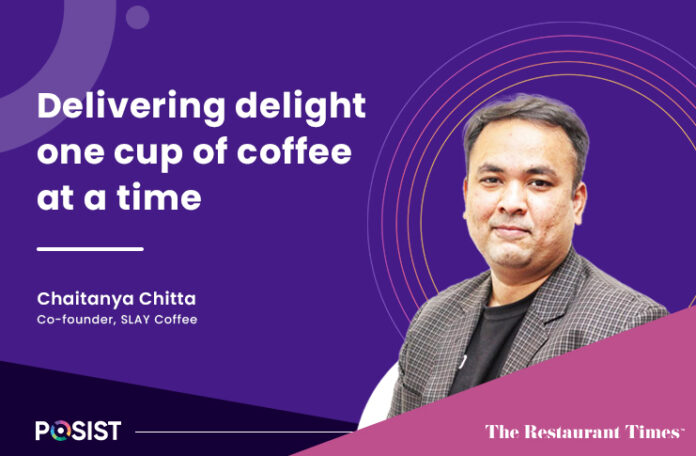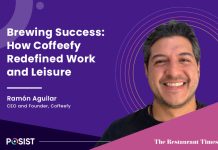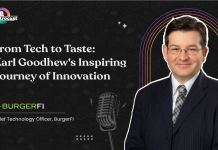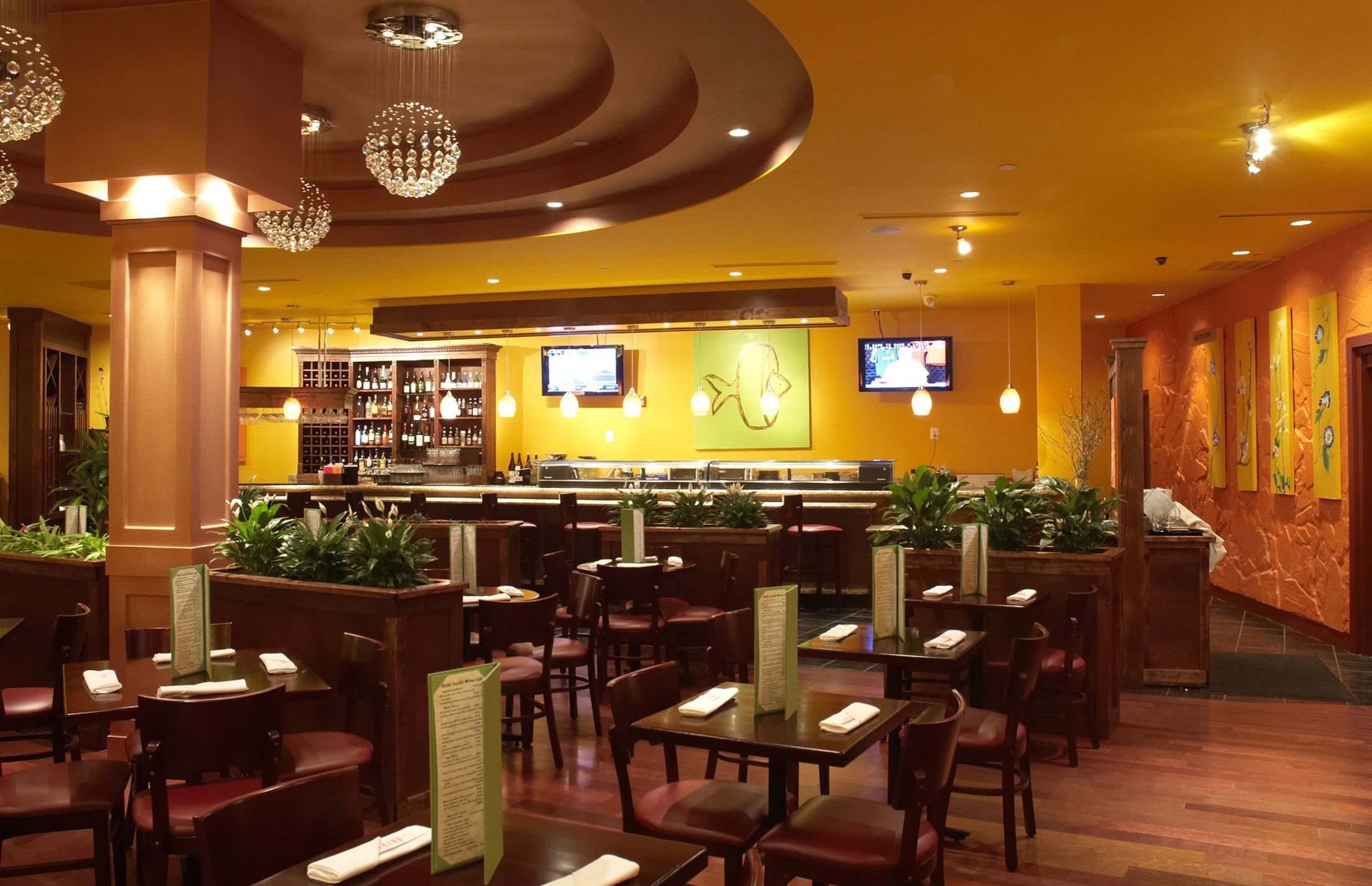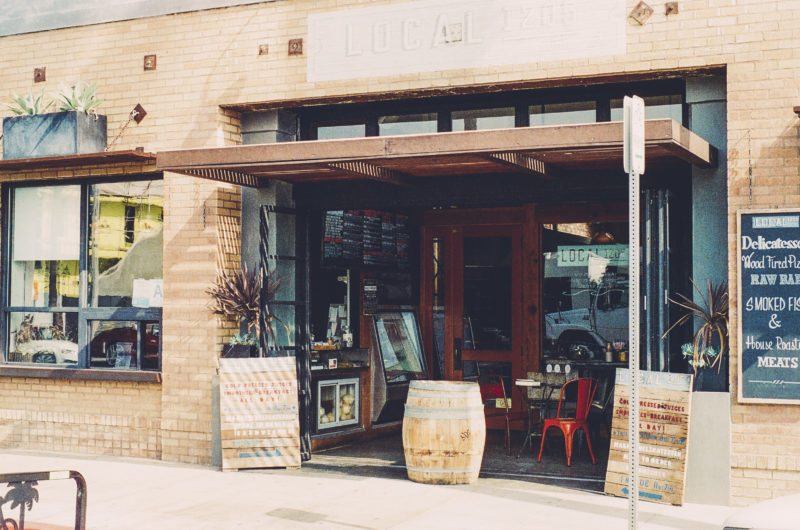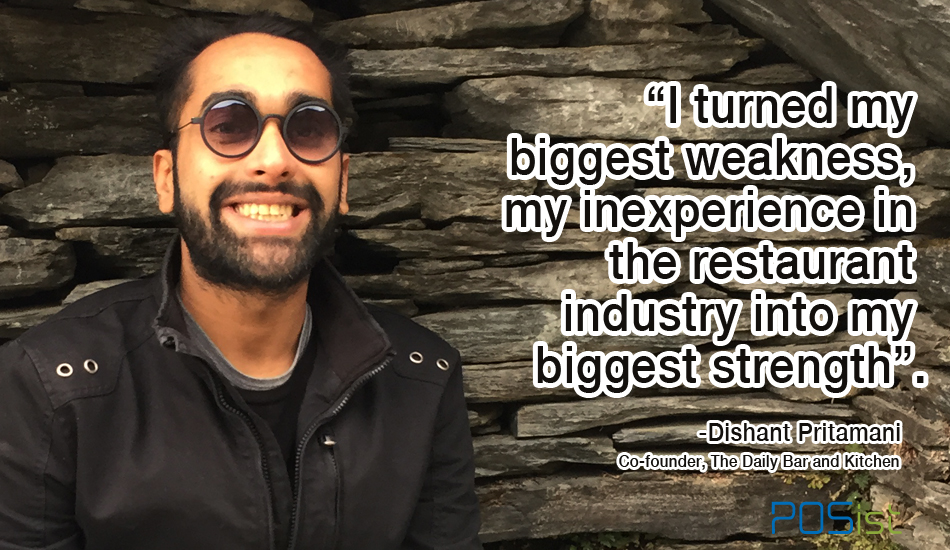They say necessity is the mother of invention. And so it happens, our latest guest on F&B talks, Chaitanya Chitta, co-founder of SLAY Coffee, took a personal ache and turned it into a brand loved by people.
Chaitanya moved back to Bangalore after a stint in New York, along with his wife, Lakshmi Dasaka. One of the things they missed the most upon their return was the coffee experience in the USA.
The couple decided to solve their own pain point and started DropKaffe in 2015, a company that sells SLAY Coffee through a cloud kitchen model. The brand aims to make the coffee experience accessible, affordable, and approachable for the young masses in India.
In a conversation with Chaitanya Chitta of SLAY Coffee
SLAY is currently present across more than 26+ cities in the country and has a massive market share of packaged coffee sales. In an exclusive conversation with The Restaurant Times, Chaitanya shares insights about the journey of building a brand loved, inspired by, and created for people.
TRT – We all have heard about cloud kitchens, but the idea of a cloud cafe is indeed unique in itself. How did the idea of starting a coffee delivery brand come into existence?
Chaitanya – The longer answer to this question takes me down memory lane but the short answer is we were trying to solve our own problems as coffee lovers. I, along with SLAY’s co-founder Laxmi Dasaka, who is also my wife, have been running DropKaffe – an on-demand ready-to-drink beverage startup. These were the early days of our business when the seeds of SLAY coffee were sown. This is our seventh year officially in this industry. The brand SLAY, however, has finished only 3 years.
When we started back in 2015, the idea was simple and came from observing the common pain points of coffee lovers in a place like Bangalore, which happens to be home of the Indian coffee scene. There are high-end cafes and South Indian coffee joints, typically known as Udupi. However, somewhere we felt there is a huge gap in terms of making coffee more accessible, approachable, and convenient.
We felt a need for something where coffee lovers can go on a daily basis. So that’s how it started. I lived in the USA for almost a decade before moving back to Bangalore and I saw that there’s no on-demand or delivery-focused coffee brand established anywhere else. It’s still largely a very new phenomenon. We started just like any startup with a hypothesis. We started the pilot and a lot of people responded well and that’s how the journey began.
It’s been an interesting journey for us as we scaled to almost 100 cloud cafes. We also have set up takeaway coffee bars for people who want to quickly pick up coffee on their way to work, or travel.
TRT: The Indian market is new to the idea of coffee delivery. Despite having a number of cafes or coffee brands, delivery was always something very much difficult due to the logistics and packaging issues. Besides, there is a general preference for tea over coffee. Considering all these challenges, what was it like to introduce a brand like SLAY to the Indian masses and how was it received initially? And, where do you see the brand going in the next few years?
Chaitanya: From the get-go, we were very clear that we have to stand for consistency, good quality, something people come back to without having a second thought. Building the entire brand proposition involved ironing out a lot of details. It involves getting a lot of things right such as the product, the menu, and then the packaging. Then, there are other things like experience and logistics. For example, hot coffee has to reach the customer at a certain temperature otherwise it’s a bad experience. Similarly, during summers if you get a classic cold coffee above 12-13 degree temperature, you won’t get that pure delight of having the cold coffee.
So, a lot of things had to come together for us to deliver the best coffee experience through the delivery. Our journey still continues wherein we constantly test and experiment with our ingredients, sourcing, blends, and menu.
For example, we don’t do a lot of whipped cream topping our cappuccinos because anything that is more suitable for dining or a sit-in setting in a cafe won’t be possible through delivery. So, you see a lot of flavored hot coffee and cold ones or americanos, lattes, and similar items.
Also, we kept in mind the customer behavior and preferences. What we do is, essentially, serve every cup in a personalized manner to the extent that each coffee is made for that particular customer. You can customize a cup of SLAY in multiple ways. You can choose the strength of the coffee, the number of shots, the flavor, the type of milk – dairy or vegan, and of course the sugar. So, essentially there is a lot of personalization of coffee that we are offering to the customers.
Having all of that completely made for you and getting that delivered in the optimal experience where you feel you’re sitting in a cafe and enjoying coffee without stepping out of comfort. That’s really something I am proud of our team. While we do all of that, we are also very conscious that if you like it you will stick to it.
There is a huge emphasis on making sure that our customers come and drink SLAY on a daily basis. One of the things that always kept us honest is also the fact that we are digital rats. Since we are a digital brand, we look at customer feedback on a daily basis. For example, our day starts with a cost and functionality team coming together and checking the customers’ feedback.
This is a great time for consumer brand businesses to build because you have easy access to customer insights. That being said, there’s a lot of room for us to grow. Obviously, we’re doing a lot of things well but there’s a lot of opportunity to improve also.
Talking about our future plans, we plan to go big. We want to make SLAY, if not the most dominant coffee brand, then one of the top two or three brands. More importantly, we want to create a sort of subculture. The customers that we serve are conscious, self-assured, and action-oriented. Therefore, we do not simply want to build a coffee brand but also position it as a lifestyle brand. This is to see ourselves play a meaningful role in our customers’ life across India in the next five or six years. Our plans are to establish hundreds of outlets offline and online.
TRT: SLAY has paid a lot of attention to its packaging. It’s stylish, quirky, and lively. What is your take on food packaging and food packaging experience?
Chaitanya: As consumers, we are increasingly conscious of not just the product but the overall experience. We are also very conscious of the kind of choices we make. A good friend of mine and a senior fellow pursuing brand marketing once mentioned that customers actually express themselves by the choices they make.
You’re essentially wearing a particular designer brand or you are going to a certain place essentially is your way of saying that this is what I care about or this is my lifestyle.
Having said that, in any product and especially in the F & B industry, the role of packaging is functional and then it has to be experiential. You’re adding another layer of delight. As a brand, we are being conscious and sustainable and try not to add too much collateral damage because we are consumers and we know consumption has its side effects. So the packaging of SLAY communicates functionality, delight, and sustainability.
TRT: SLAY has always experimented with its marketing. From crowdsourcing campaigns to branding, it has always been very catchy. So we would really like to know about your approach towards marketing and branding.
Chaitanya: Yeah, I have to give credit to a bunch of team members who always come up with some really original ideas. Innovation is very important and when we talk about innovation, it’s both on the product side and the marketing side.
We put a customer-first approach and we try to build our marketing and branding from this view only. Their feedback and response tell us if we are doing something right or wrong. So as far as the ideas are concerned, a lot of the initial thoughts came from our customer feedback, and our team was quick to pick them up and materialize them.
Now when it comes to execution, we believe in just keeping our voice authentic. There’s a lot of storytelling that we as a consumer brand do. It’s really to tell what goes behind a cup of coffee and our product. We also do a lot of showcasing of our baristas. Some of them are freshers and some have come from far-flung states of the Northeast or even Kashmir. What we are saying is, as a brand, we care about the delight of our customers by giving a good cup of coffee – one cup at a time.
Marketing for us has been more about storytelling than anything else. It’s about being authentic and kind.
TRT: What do you mean when you say that SLAY is a people-first brand? Also, how important do you think staff selection is while running a big chain of business?
Chaitanya: Attrition, in general, is a very pertinent and pressing issue, especially in a sector like F&B. As an end brand, you have to create inbound interest in your company.
You can hire and retain people. You can pay them well, and give a lot of support, guidance, and make sure that you are the right kind of employer and brand that takes care of its people. Now, these are the basics.
As an employer, you also need to start doing certain things that are unique to your business, culture, and brand. This is because your customers care based on your broader ecosystem and brand promise.
Your people should be proud of being a part of your business and this is what we are focusing on building. For example, we have a lot of SLAY barista empowerment and development policies. Our talent team has come up with a lot of original ideas on how to engage people. For example, we have an education support policy for baristas who want to pursue education in any field. Their education is completely paid for by the company. We support our people in their educational pursuits because a lot of them start very young. Some of them haven’t even unfinished their college. So we consider that just because they’re working with SLAY doesn’t mean that they need to stop education.
The second is whenever there is a work anniversary for our baristas, we reward their family members. We send money to their parents if they’re not married or to their better half to tell them that we acknowledge their role in our success. Another thing that we do is incentivize the baristas based on the feedback ratings they achieve every month.
We define our own cultural DNA and come up with policies, practices, and rituals to enable those behaviors. This culture will give us a long-term advantage as we are not just an employer; we are building an organization of people who actually think, feel, and act together.


